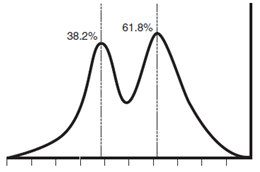I’ve written a series of short posts this week on simple trading rules that can make a difference. I’ve tried to make this as broad as possible, so that they will apply to traders working in all styles and timeframes. Today I want to share a rule that addresses a specific quirk of human behavior: the home work rule. Very simply, the rule is that you always have to do your homework, and the less you want to do it, the more you probably need to do it.
Trading is complicated, and it’s made even more complicated because we are complicated beings with complex and often contradictory psychological traits. Monitoring our behavior–not our thoughts and feelings–but the things we do can give us some real insight into our mental state. Many traders, for instance, find that they are drawn to calculate P&L constantly while they are in a big winning trade, and even to extrapolate the trend to see what impact it will have on their account. This is a warning sign; for instance, if you are a trader who looks at the market once a day but you find yourself looking at a winning trade every 15 minutes and looking at the P&L–that’s a slight break of discipline that points toward the danger of a bigger break. Not a big deal, perhaps, but something to be aware of.
On the other hand, it’s also common for traders to avoid homework when things are going badly. What is “homework”? Well, it depends on your trading plan, but, at the very least, homework should be checking account balances and activity every day. You might think you don’t need to do that, but you’re wrong. Odd things happen, and they are rarely good for your bottom line. (Examples of odd things: new stocks added to your account due to spinoffs, position “adjustments” due to margin requirements, shorts being bought in because of availability (especially fun if part of a pair trade)) At the bare minimum, checking your activity every day is required, but many traders should do far more: check open orders, look at potential new entries, review related markets, move stops on open trades, review open trades, etc.
When you are in a period in which you are losing money, you’re probably going to be tempted to skip your homework. (As an aside, “listen” to the excuses you come up with–the mind can be very amusing under stress!) You might justify skipping a day, a few days, or simply just refuse to look at the account even though you know you should. This is a severe break of discipline, and a warning that you are in trouble.
The tendency to not look at an account that is losing money is natural and very common. Perhaps you are not afflicted with this problem. If so, good for you (but I’m willing to bet you are afflicted with it!) The solution is simple but it requires a lot of mental strength: do your homework. Every day, without fail, do your homework. Even if you don’t want to or don’t have the time, it’s part of the cost you have to pay to be a trader. When you really don’t want to, take that as a clue and do some extra digging into your mental state (and perhaps it’s time to review those losing positions!) I guess this, and most rules, are an extension of the discipline rule: follow your rules, every day, without fail. Follow the rules. Do your homework.
